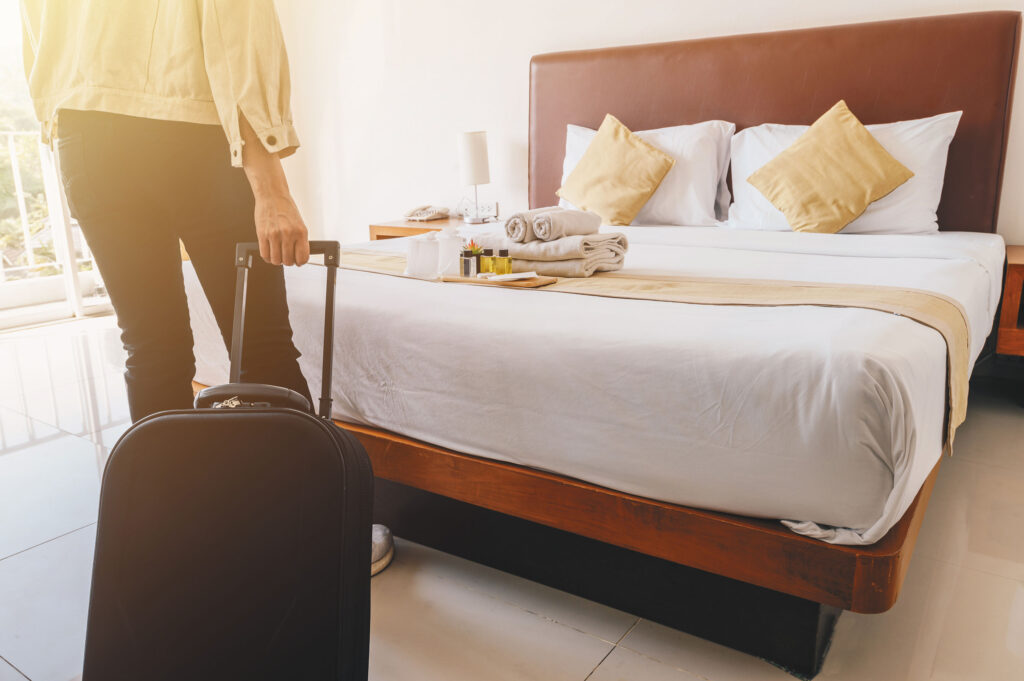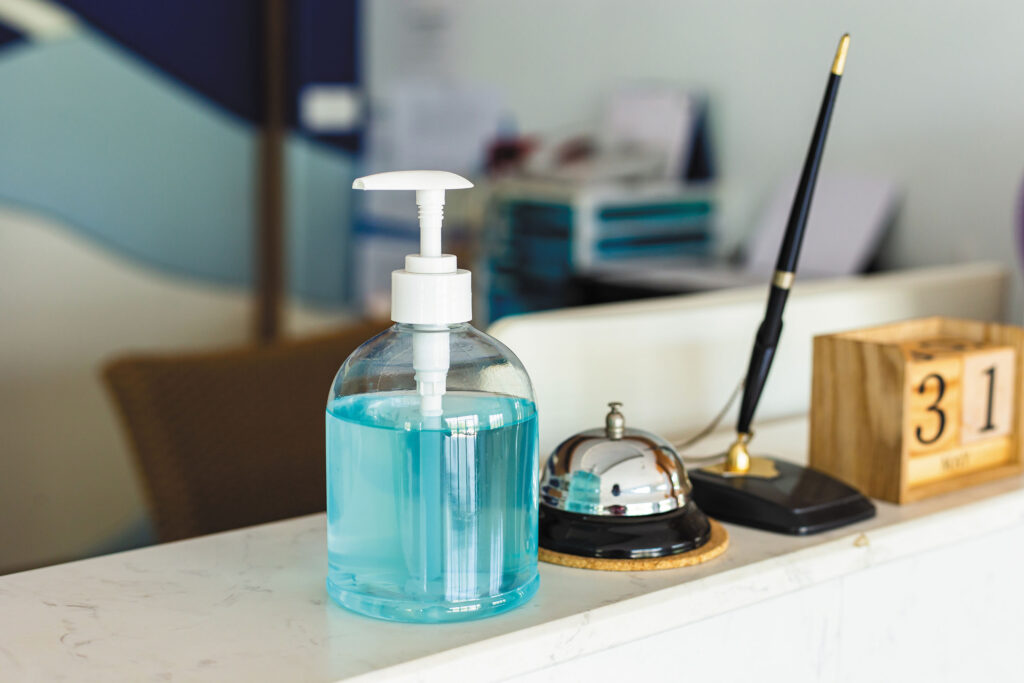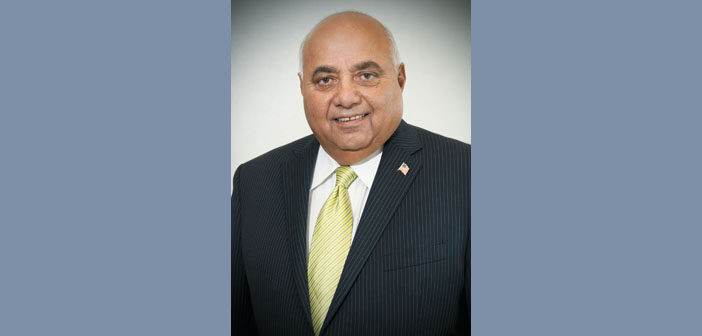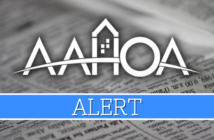Ravi Patel, Chairman of SREE Hotels, LLC, talks about the past, present, and future of the hotel industry
by PETER BERK
As the hospitality industry continues to face unparalleled economic hardships imposed by COVID-19, we are pleased to present our third in-depth interview with an AAHOA past chairman. These discussions will shed light on the struggles they went through as both owners and chair, as well as how those experiences prepared them to face today’s challenges. For this month’s edition, we sat down for an exclusive chat with Ravi Patel, AAHOA’s second chairman.
Ravi Patel is Chairman of SREE Hotels, LLC, an award-winning hotel development, acquisition, and management company affiliated with Marriott, Hilton, and IHG. In 1965, Patel received a Bachelor of Science degree from Saint Xavier College in India, with a major in chemistry and minor in physics. He also received a Bachelor of Science degree in chemical engineering from Auburn University in Auburn, AL, in 1968.
Patel is a co-founder of AAHOA and served as its charter vice chairman and second chairman. He also has held leadership roles on numerous industry and civic boards at the local, state, and national levels, including the South Carolina Hotel/Motel Association, North Carolina Hotel/Motel Association, Charlotte Regional Visitors Authority, The Greater Charlotte Hospitality and Tourism Alliance, Econo Lodge of America Inc. Franchisee Association, University of South Carolina’s School of Hotel, Restaurant & Tourism Management, Charlotte Chamber of Commerce, University of North Carolina-Chapel Hill Thurston Arthritis Foundation, Central Piedmont Community College Presidents Council, The Hindu Center of Charlotte, and Charotar Patidar Samaj.
Patel has been recognized with numerous awards for his commitment to the industry and his community, including Distinguished Service to the Econo Lodge System, AAHOA Oberoi Award for Excellence in Hospitality, AHLA Economy Lodging Person of the Year, The Greater Charlotte Hospitality and Tourism Alliance Outstanding Hospitality Person of the Year, Patrick McCrory International Entrepreneur Award, and the America Diabetes Association Father of the Year.
What year did you get into the business?
1980
What was the first hotel you owned, and where was it?
The Downtowner Motel located on Main and Lady streets in Columbia, SC. I was a 25-percent partner in the hotel.
How many hotels does your firm own today, and what brands are they?
SREE Hotels owns 29 hotels, 24 of which we manage, and five that are managed by our partners. Our partners include Marriott, Hilton, and IHG. Our portfolio comprises SpringHill Suites, Courtyard by Marriott, Residence Inn by Marriott, Aloft, Fairfield Inn by Marriott, Hampton by Hilton, Homewood Suites by Hilton, Embassy Suites by Hilton, Curio Collection by Hilton, and Holiday Inn.
What is something that people probably don’t know about you?
I like to travel and play golf. In India, I was the captain of the basketball team at Gujrat University. I was born in Fiji but was educated in India and the United States. For nine-and-a-half years, I worked for Goodyear Tire & Rubber as a chemical engineer.
Describe an unexpected challenge you faced when opening your first hotel.
The hardest challenge was trying to figure out how to get a loan from banks without any collateral. Many of the banks, vendors, and insurance companies were doing transactions with Indian owners for the first time, and we had to overcome stereotypes against the Asian community.
How did you educate yourself?
I learned about the industry by getting involved in city, state, and national hospitality organizations. My first franchise was an Econo Lodge, and I went on to become the President of the Econo Lodge Franchise Association in 1988-89. At the same time, I helped found AAHOA along with HP Rama. I was its first vice chairman and went to become chairman the following year. I also was very involved with AHLA and served as chairman of its Economy Lodging Council.

BOYLOSO/SHUTTERSTOCK.COM
What were the measures taken at your firm when you realized the severity of the COVID-19 crisis?
The first thing we did was work with our brand partners on a plan for guest and employee safety and operation standards during the pandemic. We then had to make some tough decisions on staffing and hotel openings, as occupancy sharply declined at the end of March.
How did you make the decision to keep your hotels open or close them?
We decided to keep all 24 of the hotels that we operate open. Shutting down a hotel could have had long-term ramifications on the building, and it would take plenty of resources to bring them back online. We shut down floors within the building but not the entire building. We also decided to keep all of our salaried employees on payroll. We have built a culture with our management teams and wanted to retain that as we moved through the process. They took on more hourly duties, and our hourly employees had their hours reduced.
How did your ability to overcome adversity in the past help you in your decision-MAKING process amid the pandemic?
We are a family owned business, and that is the mindset and culture we want to instill in our team members. We make everyone that works for the organization feel like they are a part of our family, which gives everyone involved a sense of purpose and drive to do what it takes to thrive and survive.
Let’s discuss finance. How have your lenders handled your existing loans? Have you gotten relief/forbearance?
All of the local balance sheet and relationship lenders gave us extensions and relief for 90-120 days. We will now have to go back and have more discussions as COVID-19 has impacted our business a lot more than what we initially anticipated. It will be an interesting lesson to see how they react now. CMBS is a bit more challenging because of the way those loans are structured. We have had discussions, and there are opportunities to get access to FF&E reserves to help with debt service, but it is an expensive proposition. We are hopeful there will be some national legislative action taken to assist with the enormous CMBS debt in the market.
What steps are you taking to make travelers feel safe and comfortable at your hotels?
Our team members are required to wear masks and frequently wash their hands – these measures have been in place since the early stages of the crisis. If anyone has a fever or is feeling sick, they are not allowed to work and have to go home. If someone is exhibiting symptoms, then we require they get tested. We added social-distancing signage, sanitizer stations, barriers at the front desk, and a contactless check-in and checkout process. We also increased the frequency of cleaning in all public spaces.
Do you expect hotels in your market to open again? Which type of hotels will survive?
There will be some hotels that will not open again. It will all depend on leverage and the operations that have been instituted during this period. Every hotel is a different story, and all will be on a different timeline for recovery. Leisure and drive-to destination hotels are already seeing a huge rebound. Next, I think, will be corporate transient travel hotels and, finally, the meeting business.

SIRIWAT WONGCHANA/SHUTTERSTOCK.COM
What do you think about the current Zoom meeting concept? Will that impact the business traveler demand in the future?
Over the years, people have always said technology has the potential to diminish or stop travel. I think in-person meetings will never die. There is emotion in a face-to-face meeting that you cannot replicate with technology.
Who will the winners and losers be at the end of this pandemic?
It is difficult to predict the winners and losers. At this point, our industry is definitely a loser, but we are a resilient group and will fight back. The biggest loser today with all the government-mandated shutdowns is the small business owners and hourly employees. The biggest winners are technology companies.
What advice would you give to other hotel owners to get through this current crisis?
Learn from what you are going through now. This crisis has given us the opportunity to tighten our belts and focus on our margins. It has shown us where we can save and given us new creative revenue opportunities. Above all, ensure that you are taking care of your team members as best you can because they will be the ones you will rely on when you rebound.
The big crystal ball question: When do you expect RevPar to get back to 2019 levels?
It will take at least four to five years. The end of 2023 at the earliest.
 Peter Berk is President of PMZ Realty Capital LLC – Hotel Finance Group. He has more than 26 years of experience in the real estate industry and is a frequent lecturer at industry events, including AAHOA webinars and meetings. He has arranged more than $6 billion of debt and equity transactions for hotel owners, representing more than 50,000 hotel rooms. As an industry leader, he has worked with AAHOA Members for more than 20 years on their financing needs. Berk attended George Washington University as an undergraduate and holds a graduate degree from Columbia University. He can be reached at [email protected] or 212-277-8265.
Peter Berk is President of PMZ Realty Capital LLC – Hotel Finance Group. He has more than 26 years of experience in the real estate industry and is a frequent lecturer at industry events, including AAHOA webinars and meetings. He has arranged more than $6 billion of debt and equity transactions for hotel owners, representing more than 50,000 hotel rooms. As an industry leader, he has worked with AAHOA Members for more than 20 years on their financing needs. Berk attended George Washington University as an undergraduate and holds a graduate degree from Columbia University. He can be reached at [email protected] or 212-277-8265.



